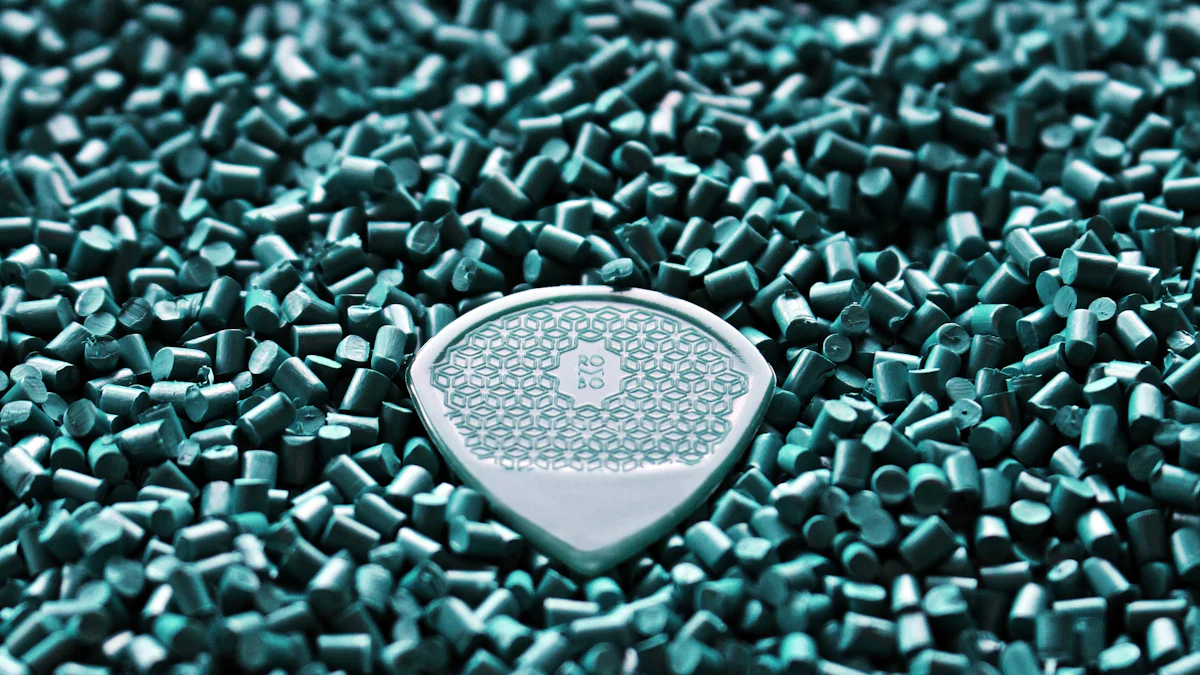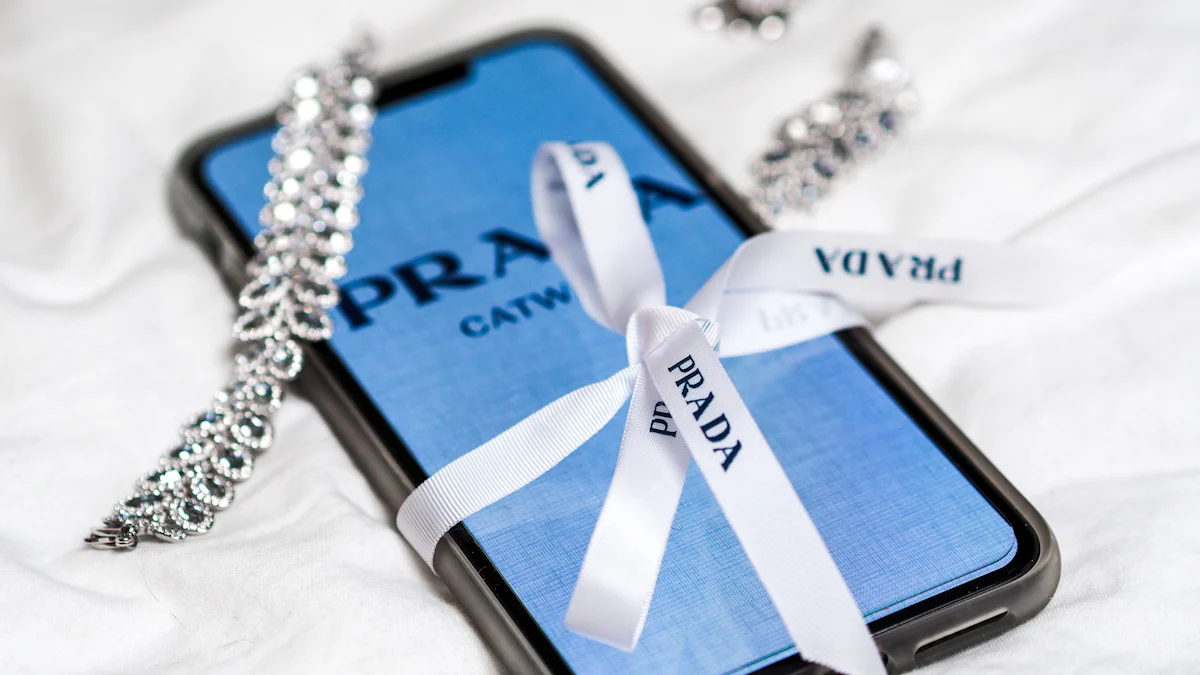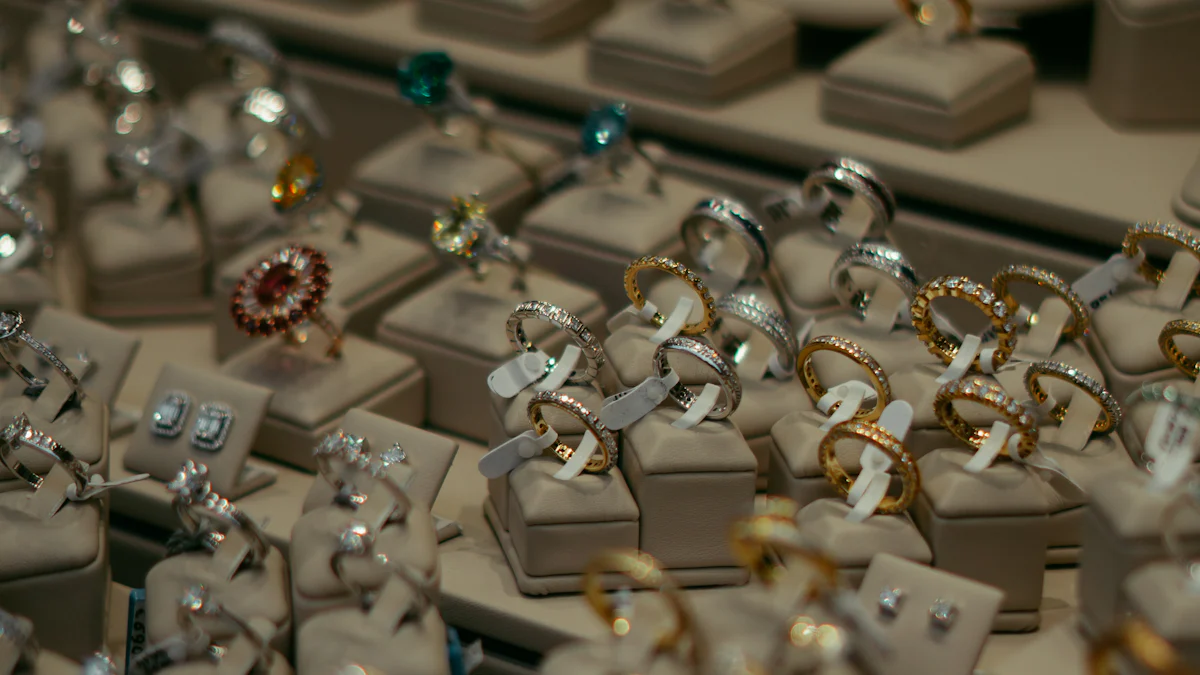Why Diamonds Are Worthless for Many Buyers

Have you ever wondered why so many people regret buying diamonds? It’s not just about the money. For decades, marketing campaigns have pushed the idea that diamonds symbolize love and status. In 1938, De Beers launched a campaign featuring Hollywood stars and the slogan "A Diamond Is Forever," cementing the notion of diamonds as a representation of eternal love. However, this concept dates back even further—by the 1400s, diamond rings were already being exchanged as love tokens in Europe. Despite the romantic allure, many buyers eventually come to the harsh realization that diamonds are worthless in terms of financial and emotional value, leaving them to question if diamonds are truly worth it.
The Financial Reality Behind Diamonds

Why Diamonds Are Financially Worthless
The role of marketing in creating artificial scarcity
Have you ever wondered why diamonds seem so valuable? It’s not because they’re rare. In fact, diamonds are more common than you might think. The illusion of scarcity comes from decades of clever marketing. Companies like De Beers have spent billions convincing you that diamonds are special and irreplaceable. They’ve even stockpiled diamonds to limit supply, making them appear rarer than they actually are. This artificial scarcity drives up prices, but it doesn’t reflect the true value of the stone.
How monopolies control diamond prices
The diamond industry is tightly controlled by a few major players. These companies dominate the market, setting prices and controlling supply. For example, De Beers once controlled over 80% of the world’s diamond trade. This monopoly allowed them to dictate prices, regardless of the actual demand. Even today, the industry remains consolidated, with key players ensuring that diamonds stay expensive. But for you, this means paying more for something that’s not as rare or valuable as it seems.
Resale Challenges of Diamonds
Why diamonds lose value immediately after purchase
The moment you buy a diamond, its value plummets. On average, diamonds resell for only 20% to 60% of their original price. For instance, a $4,500 engagement ring might fetch just $1,850 if you try to sell it. This steep drop happens because retailers mark up prices significantly, leaving you with a stone that’s worth far less than what you paid.
The difficulty of selling second-hand diamonds
Selling a diamond isn’t as easy as you might think. Many buyers face challenges like:
- Retailers already having high inventories, so they’re not eager to buy more.
- Weak consumer demand, especially during non-holiday seasons.
- Financial struggles in the supply chain, making it harder to find buyers.
These factors make it tough to recoup even a fraction of your investment, leaving you stuck with a stone that feels more like a liability than an asset.
Hidden Costs of Diamond Ownership
Expenses like settings, certifications, and insurance
Buying a diamond isn’t just about the stone itself. You’ll also need to pay for the setting, which can cost hundreds or even thousands of dollars. Then there’s the certification, which proves the diamond’s quality. Add insurance to protect your purchase, and the costs keep piling up. These hidden expenses make diamonds even more financially draining.
The financial burden of financing diamond purchases
Many people can’t afford to pay for diamonds upfront, so they turn to financing. But this comes with high-interest rates and monthly payments that can stretch your budget thin. Over time, you might end up paying far more than the diamond is worth. This financial strain can make you question whether the purchase was worth it in the first place.
Emotional Regrets and Societal Pressures
The Emotional Cost of Diamonds
Disappointment with the diamond’s quality or size
Have you ever felt let down by something you thought would be perfect? Many diamond buyers experience this. You might have spent weeks or months saving for a diamond, only to realize it doesn’t meet your expectations. Maybe the stone looks smaller than you imagined, or its sparkle isn’t as dazzling as you hoped. This disappointment can leave you questioning if the purchase was worth the effort and expense.
Realizing the purchase didn’t bring lasting happiness
Diamonds are often sold as symbols of eternal joy, but do they really deliver? For many, the excitement fades quickly. You might find that the diamond doesn’t bring the happiness or fulfillment you expected. Instead, it becomes just another possession, failing to live up to the emotional promises tied to it. This realization can feel like a misfortune, especially when you think about what else you could’ve done with that money.
Societal Expectations and Regret
How cultural norms push people to buy diamonds
Why do so many people feel obligated to buy diamonds? Society has ingrained the idea that diamonds are essential for engagements, anniversaries, and other milestones. You might feel pressure from family, friends, or even social media to follow this tradition. These cultural norms can make it hard to consider alternatives, even if they align better with your values.
The fear of judgment for choosing alternatives
Choosing something other than a diamond can feel risky. You might worry about what others will think. Will they judge you for not following tradition? Will they assume you couldn’t afford a diamond? This fear of judgment often pushes people to buy diamonds, even when they don’t truly want one. It’s a tough cycle to break.
Personal Stories of Emotional Regret
Feeling manipulated by marketing and societal norms
Many buyers look back and feel they were manipulated. You might realize that clever marketing campaigns and societal pressures influenced your decision more than your own desires. This can lead to regret, as you see how external forces shaped such a personal choice.
Regret over prioritizing materialism over meaningful choices
Some people regret prioritizing a material item over something more meaningful. You might wish you had spent the money on an unforgettable experience or a more personal symbol of love. These regrets often highlight how much more fulfilling non-material choices can be.
Real-Life Diamond Stories of Regret
Financial Struggles After Buying Diamonds
A story of someone who went into debt for a diamond
Imagine saving for months, only to realize it’s still not enough. That’s what happened to Jake, who felt pressured to buy a diamond engagement ring for his fiancée. He didn’t have the cash, so he financed the purchase. The monthly payments seemed manageable at first, but unexpected expenses piled up. Soon, Jake found himself drowning in debt, all because of a single purchase.
How the financial strain impacted their life
The financial strain took a toll on Jake’s relationship. Arguments about money became frequent, and the joy of the engagement faded. He later admitted that the diamond felt more like a curse than a blessing. The debt lingered for years, making him regret prioritizing societal expectations over financial stability.
Emotional Disappointment with Diamonds
A story of someone who felt pressured into buying a diamond
Sarah’s story is another example of how societal pressure can lead to regret. She bought a diamond necklace for herself after a promotion, thinking it would symbolize her success. But deep down, she didn’t even want a diamond. She just wanted to fit in with her peers, who flaunted their jewelry on social media.
How they later realized it didn’t align with their values
Over time, Sarah realized the necklace didn’t bring her happiness. It felt like a cursed diamond, a constant reminder of how she let external influences dictate her choices. She eventually sold it and used the money for a solo trip, which brought her far more joy and fulfillment.
Lessons from Regretful Buyers
Stories of people who found happiness in alternatives
Many regretful buyers have shared diamond stories about how they found happiness in alternatives. For example, one couple chose a sapphire engagement ring instead of a diamond. They loved how unique and personal it felt.
How they reframed their perspective on material possessions
These buyers often say they’ve learned to value experiences over possessions. They see the curse of materialism for what it is—a distraction from what truly matters. By shifting their focus, they’ve found more meaningful ways to celebrate love and success.
Alternatives to Diamonds Worth Considering

Lab-Grown Diamonds as a Better Option
Why they are more affordable and ethical
Lab-grown diamonds offer a practical and ethical alternative to natural diamonds. They’re created in controlled environments, which eliminates the need for mining. This process makes them 20-80% cheaper than natural diamonds. You won’t have to worry about the environmental damage or labor exploitation often linked to mined diamonds. Plus, lab-grown diamonds have a much smaller carbon footprint. For instance, producing one carat of a lab-grown diamond disturbs only 0.07 square feet of land, compared to nearly 100 square feet for a mined diamond. If you’re looking for a guilt-free option that doesn’t break the bank, lab-grown diamonds are worth considering.
How they compare in quality to natural diamonds
You might wonder if lab-grown diamonds match the quality of natural ones. The answer is yes. These diamonds are chemically and physically identical to their mined counterparts. In fact, their controlled production allows for precise customization, ensuring high clarity and brilliance. The only difference is their origin. With lab-grown diamonds, you get the same sparkle and durability without the hefty price tag or ethical concerns.
Non-Diamond Gemstones
Unique and meaningful options like sapphires or moissanite
If you want something truly unique, non-diamond gemstones like sapphires or moissanite might be perfect for you. Sapphires, with their stunning blue hues, symbolize trust and gratitude. They’re also incredibly durable, making them ideal for daily wear. Moissanite, on the other hand, offers a brilliant sparkle that rivals diamonds. It’s eco-friendly and has a charm all its own. Other options like garnets or peridots bring their own meanings, from love and peace to vitality and renewal. These gemstones let you create a piece of jewelry that feels personal and special.
How they can be more personal and cost-effective
Choosing a gemstone instead of a diamond can save you a lot of money. This gives you the freedom to invest in other important things, like your wedding or future plans. Gemstones also allow for more personalization. You can pick a stone that reflects your personality or holds sentimental value. Whether it’s a sapphire engagement ring or a moissanite necklace, these alternatives stand out in a way that a fake diamond ring never could.
Non-Material Symbols of Love
Experiences, custom jewelry, or other creative alternatives
Sometimes, the best way to show love isn’t through a material item. Experiences like a romantic getaway or a special dinner can create memories that last a lifetime. Custom jewelry is another great option. You can design a piece that tells your unique story, making it far more meaningful than a traditional diamond. Other creative ideas include planting a tree together or writing heartfelt letters. These gestures often hold deeper emotional value than any gemstone ever could.
How these options can hold deeper emotional value
Think about what truly matters to you and your partner. Is it the sparkle of a diamond, or the joy of keeping the ring as a symbol of your shared journey? Non-material symbols of love focus on the connection between you two. They’re not tied to societal expectations or fleeting trends. Whether it’s a shared experience or a custom piece of jewelry, these alternatives can bring lasting happiness without the regret of a wedding being canceled or a diamond losing its value.
Diamonds often fail to deliver on their promises, leaving you with financial losses and emotional dissatisfaction. Marketing campaigns and societal norms push you toward these purchases, but they rarely align with what truly matters.
Instead, consider alternatives that offer both value and meaning:
- Lab-grown diamonds cost significantly less, ranging from $1,000 to $2,000 for a 1.00-carat stone, compared to natural diamonds that can cost up to $100,000.
- They also align with ethical and environmental values, helping you feel more responsible about your choices.
Ultimately, the best purchase reflects your personal values, not society’s expectations. Choose what feels right for you.
FAQ
What happens if you try to pawn a diamond?
When you pawn a diamond, you’ll likely get far less than what you paid. Pawn shops base their offers on resale value, not retail price. Since diamonds lose value quickly, the amount offered might feel disappointing. It’s rarely a good way to recover your investment.
Can you sell a diamond back to the store?
Most stores won’t buy back diamonds at full price. Some offer trade-in programs, but even then, the value is much lower than what you originally paid. Selling to a pawn shop or private buyer might be an option, but it’s often challenging to find a fair deal.
Why do diamonds lose so much value?
Diamonds lose value because of high retail markups and low resale demand. Retailers inflate prices to cover overhead costs, but second-hand buyers, like pawn shops, only pay for the stone’s actual market value. This gap leaves you with a significant financial loss.
Are lab-grown diamonds accepted at pawn shops?
Pawn shops may accept lab-grown diamonds, but they often offer even less for them than natural diamonds. Since lab-grown stones are more affordable and widely available, their resale value is lower. Always check with the pawn shop beforehand to understand their policies.
What’s the best way to sell a diamond?
Selling directly to a private buyer often gets you the best price. Online marketplaces or specialized diamond buyers can offer better deals than pawn shops. However, it takes time and effort to find a buyer willing to pay a fair price for your diamond.
See Also
Exploring Essential Elements That Influence Diamond Ring Costs
Tips for Getting the Best Price on Your Diamond Ring
Discovering the Charm Behind Diamond Dust Jewelry

